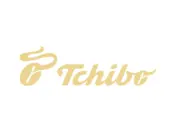
Recently, we wrote about quantitative research techniques used by city and commune offices in resident opinion research. This time we want to look at qualitative methods and consider how useful these studies can be in conducting dialogue between: Office (city/municipality) - Residents.
Qualitative techniques in resident opinion research
In addition to quantitative research and surveys (more at the link: https://mediamiejskie.pl/blog/od-badania-opinii-do-zdrowiea-mieszkancow/), in dialogue with residents we can use qualitative research techniques, i.e. those in which the researcher tries to describe reality in qualitative terms, paying attention to the quality of phenomena, not the frequency of their occurrence. This is a type of research in which we will look for answers to the questions: what?, how?, why?, for what reason?, in what way? etc. Qualitative research has a flexible scenario, and the influence of the researcher (here called moderate) on the course of the study is very large. The interpretation of the results in this case is rather subjective and does not allow generalization to the entire population.
Focus research
When it comes to qualitative research conducted by offices, the so-called focus research, i.e. focus group interviews (FGI). This is one of the most popular qualitative research methods, which involves a moderated, joint discussion of a group of interview participants on a pre-defined topic/group of topics. There is a phenomenon of mutual stimulation of discussion participants, inspiration, provoking them to express opinions and construct ideas. The moderator's task is to properly direct the conversation and encourage respondents to be active. In this case, the research samples are not very large (6-8 people), and the research participants are selected purposefully (they have specific characteristics).
Quantitative and qualitative research projects
In the case of surveys on the opinions of city and commune residents, we often deal with research projects that combine quantitative and qualitative methods. Most often in the following sequence: first, PAPI surveys, and then - after analyzing the data collected as part of the survey - a quantitative FGI survey is conducted with selected groups of residents (e.g. seniors, youth and representatives of families with school-age children), which is intended to aimed at deepening the knowledge gained through surveys. In this way, in the first step, we obtain answers to the question "how much?" (e.g. how many residents are/are not proud of their city?), and in the second step we deepen the acquired knowledge by asking "why?" (e.g. what makes residents/are not proud of their place of residence? What could be changed, improved or improved to make them more proud?).
We carried out such combined research projects, consisting of quantitative and qualitative research, among others: for the Polkowice Commune Office and for the Chorzów City Hall. In the case of Polkowice, the study concerned the opinions of commune residents on the quality of life: in the first phase of the project (quantitative research), over 500 interviews were conducted using the PAPI method, and in the next step, focus studies were carried out in three groups of six people: seniors, families with children of preschool and early school age, and singles. In the case of Chorzów, the research project concerned the residents' opinions on the first World Press Photo exhibition in Poland organized by the City Hall in the industrial spaces of the former Huta Królewska, as well as the possibility of using the issue of photography in the broadly understood promotion of Chorzów. The first part of the research for Chorzów included 500 PAPI interviews, and the next one - research in three focus groups formed by:
- residents of Chorzów,
- cultural organizers in the city,
- people professionally involved in photography.
More about the World Press Photo exhibition in Chorzów at the link:
https://zpaf.pl/aktualnosci/slaski-festiwal-word-press-photo-chorzow/














